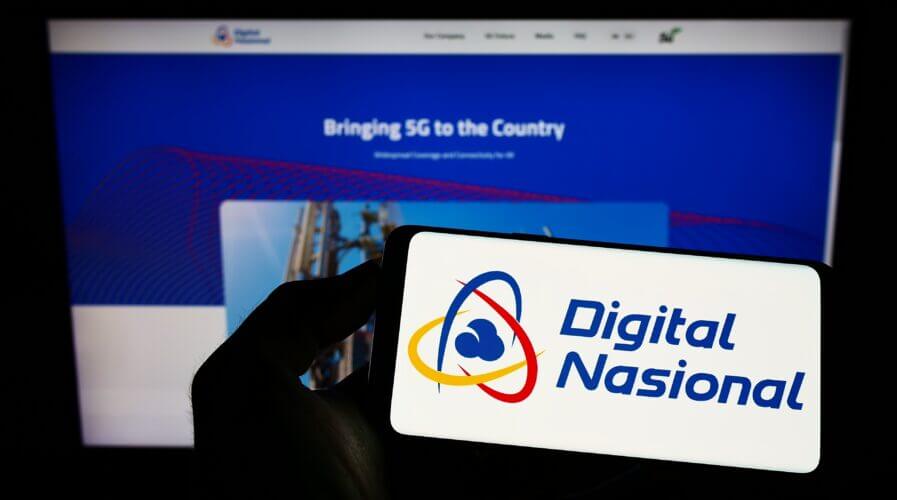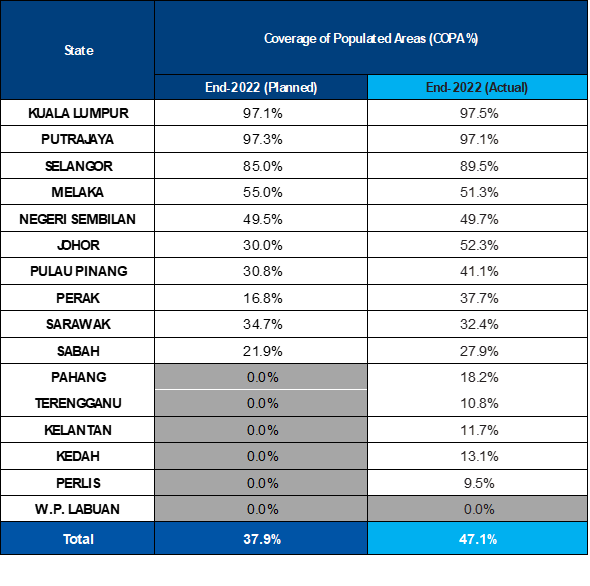
(Source – Shutterstock)
Maxis to finally sign 5G Access Agreement with DNB?
As one of the largest telco companies in Malaysia, the 5G journey for Maxis has been an interesting one. While all the other major MNOs (Mobile Network Operators) in Malaysia have signed up with Digital Nasional Berhad (DNB) to get access to the 5G network, Maxis has yet to pen any deal with them.
However, the wait may soon be over for Maxis users as DNB has stated that Maxis has indicated that it plans to get shareholders’ approval to execute the 5G Access Agreement with DNB in January.
When it comes to 5G, Maxis has been championing the network for the longest time. The telco continues to market 5G capabilities and recently announced that it is allowing customers to have access to 5G outside of Malaysia in 29 countries through 5G roaming. In June 2022, Maxis also formed one of the largest 5G alliances in Malaysia to accelerate technology breakthroughs and IoT enterprise solutions. Comprising global and local technology and industry partners, innovators, and lighthouse customers from diverse industries. The alliance will co-create, commercialize and scale 5G use cases and innovative solutions across industries to drive digital transformation and innovation.
While Maxis users eagerly await the availability of 5G on their devices, the remaining MNOs have made retail 5G services available to their more than 20 million subscribers, following the signing of their respective 5G Access Agreements with DNB on 31 October 2022.
According to DNB, since the launch of 5G services by the five MNOs, Malaysia’s 5G network has seen an 8x increase in usage from 32TB to 253TB per day. The five MNOs are Celcom Axiata Bhd, Digi Telecommunications Sdn Bhd, Telekom Malaysia Bhd, U Mobile Sdn Bhd, and YTL Communications Sdn Bhd (YES).
At its peak, there are some 90,000 concurrent users as of 31 December 2022. The 5G network is averaging 380 Mbps download speed (which compares favorably with other reported global benchmarks) against the average 4G download speed of 35 Mbps.
This marks a huge milestone for DNB, which has been tasked with delivering 5G services to the country. DNB announced that Malaysia’s 5G network has achieved almost 50% coverage of populated areas (COPA) with some 3,900 sites as at end-2022 – comfortably exceeding the target of 40%.

*The network currently exceeds 95% coverage in dense-urban (Kuala Lumpur) and major urban (Putrajaya, Cyberjaya, Johor Bahru, Georgetown) locations nationwide. (Source – DNB)
The service provider is now focused on delivering the committed target of 80% COPA by the end of 2024, if not earlier. Currently reaching some 15 million users, it is expected to reach more than 30 million people and businesses when fully deployed. The support from state and local councils has also accelerated approvals for deployment. Consequently, DNB was able to recover some shortfalls in setting up sites and achieved a speedier deployment during the last month.
As such, DNB has achieved more than 90% COPA throughout Kuala Lumpur and Putrajaya, and Selangor as well as some 50% across Johor, Malacca, and Negeri Sembilan. All other states are in various stages of deployment and, together with the aforementioned states, are expected to achieve full network deployment in 2024.
“Having exceeded our 2022 network coverage target, we are working closely with both our MNO partners and device manufacturers to promote and encourage the rapid adoption of 5G nationwide in 2023. The MNOs have introduced numerous 5G data plans for their customers at very attractive retail prices, to encourage adoption of 5G services,” stated Nasution Mohamed, Chief Operating Officer of DNB.
Despite this, there is still some concern from the government. According to a report by Bloomberg, Communications Minister Fahmi Fadzil stated that the government’s concerns with the 5G services range from the contracts signed to the speed that the network is being deployed. On the coverage claimed by DNB, Fahmi also pointed out that these figures would take Malaysia’s Communications and Multimedia Commission two weeks to verify.
It remains to be seen whether the minister’s comments could impact Maxis’s decision to sign the agreement with DNB. For now, Malaysia expects “some kind of finality” in its review of the 5G mobile services contract by this quarter, added the minister.
At the same time, 5G-compatible devices continue to proliferate the market, with approximately eight million devices already in the hands of end users as of end-2022. Growth is forecasted to double this year and exceed 40 million devices by 2030.
Apple is the latest device manufacturer to issue firmware updates in Malaysia to make iPhones 12 and subsequent models compatible with the 5G network. There are currently 15 device brands with more than 100 5G-compatible devices for all budgets available in the Malaysian market. This, coupled with myriad retail 5G data plan offerings from the five Malaysian MNOs will result in accelerated 5G adoption among end users over the next few years.
READ MORE
- Strategies for Democratizing GenAI
- The criticality of endpoint management in cybersecurity and operations
- Ethical AI: The renewed importance of safeguarding data and customer privacy in Generative AI applications
- How Japan balances AI-driven opportunities with cybersecurity needs
- Deploying SASE: Benchmarking your approach


